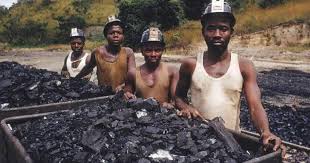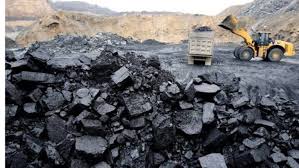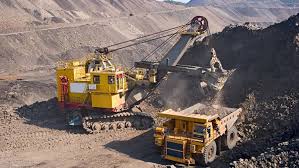![]()
If you’ve landed on this article page, you’re probably searching for a
good business idea—an idea that’s light on the pocket but heavy on
returns, promising both a fulfilling journey and potential profit.
|
How to start Coal Mining Business in
Nigeria
Coal has been used as an energy resource, primarily burned for
the production of electricity and/or heat, and is also used for
industrial purposes, such as refining metals. A fossil fuel,
coal forms when dead plant matter is converted into peat, which
in turn is converted into lignite, then sub-bituminous coal,
after that bituminous coal, and lastly anthracite. This involves
biological and geological processes that take place over a long
period.
Coal mining involves drilling, blasting, and removing layers of
soil and rock to access the coal deposits buried deep within the
earth. Once extracted, the coal is then processed and
transported to power plants, where it is burned to produce steam
that drives turbines to generate electricity.
Coal is the largest source of energy for the generation of
electricity worldwide, as well as one of the largest worldwide
anthropogenic sources of carbon dioxide releases. In 2011, world
gross emissions from coal usage were 14,416 million tonnes.
Coal-fired electric power generation emits around 2,000 pounds
of carbon dioxide for every megawatt-hour generated, which is
almost double the approximately 1100 pounds of carbon dioxide
released by a natural gas-fired electric plant per megawatt-hour
generated.
Different types of coal have different uses. Steam coal – also
known as thermal coal – is mainly used in power generation.
Coking coal – also known as metallurgical coal – is mainly used
in steel production.
The biggest market for coal is Asia, which currently accounts
for over 67% of global coal consumption; Many countries do not
have natural energy resources sufficient to cover their energy
needs, and therefore need to import energy to help meet their
requirements.
The high demand for Nigerian coal is attributed to its low
sulphur and moderate ash content. When the necessary
infrastructure is put in place and the abandoned mines
reactivated and modernised, coal export can yield the nation
about US$1 billion per annum.
Coal is found in commercial quantities in states such as
Anambra, Enugu, Ebonyi, Kogi, Benue, Gombe, among others.
According to experts, Nigerian coal is also adequate and
suitable for use as boiler fuel, high calorific gas, domestic
heating, formed coke and in the manufacture of a wide range of
chemicals.
Current uses for coal in the country are in cement production,
brick factories, foundries, laundries and bakeries, tyre
manufacture, battery manufacture, and domestic cooking fuel . In
recent years, there has been a growing demand for businesses to
not only focus on profitability but also consider sustainability
and its impact on the environment. This is especially true in
industries such as coal mining, which has historically been
criticized for its negative environmental impacts.
Nigeria presently generates about three thousand {3000}
megawatts of electricity and it has been estimated that it would
require at least forty thousand {40,000} megawatts to support
her industrial and economic aspiration of being amongst the top
twenty {20} economies in the world by the year 2020.
Comparatively, it has been estimated by experts that a coal
powered plant would cost one-sixth the cost of powering the
plant by gas and due to it use in powering railways, coal mining
and processing is highly required.
Given the large deposits of brown coal in the tertiary sediments
east and west of River Niger; Nigeria can cash in on foreign
investors’ technology to produce coal pellets for industrial
use, coal briquettes for domestic use; that is, to replace
firewood and fight back desert encroachment and extreme weather
conditions in the Northern part of the country.
A grant of a Mining License to a prospective company is subject
to proof of economic reserve of the mineral commodity for which
a concession is sought. The process involves the company first
applying to the Honorable Minister for Certificate of Entry into
Mining Industry. The requirements for this include submission of
the company’s Certificate of Registration, evidence of technical
competence and of financial capability.
The next step is for the company to apply and obtain a
prospecting right (PR) to enable it carry out general and
scientific prospecting for the categories of minerals within the
prospecting right. If properly conducted, work on this right
will guide the company towards zeroing into a particular mineral
within a specific land area.
It is only after the company has satisfied itself of the
availability of the mineral in commercial quantity on the EPL
that it will apply for grant of a Mining License over the whole
or part of the area covered by the EPL.
In the course of all these processes, the law insists that the
company employs the services of a “technically competent person”
in carrying out the prospecting under the PR, the exploration
within the EPL and finally the extraction of the mineral within
the mining license area.
Some of the investment incentives in the solid minerals industry
in Nigeria include
3-5 years Tax Holiday
Deferred royalty
payments
Possible capitalization
of expenditure on exploration and surveys
Extension of
infrastructure such as roads and electricity to mining sites,
and provision of 100% foreign ownership of mining concerns.
One way to incorporate sustainable practices into coal mining is
by implementing more efficient technologies and processes.
Traditional methods of extracting coal often involve significant
waste production and high levels of pollution. By investing in
clean coal technologies such as carbon capture and storage (CCS)
or utilizing renewable energy sources like wind or solar power
for operations, companies can significantly reduce their
environmental impact.
Starting a coal
production and supply business requires careful planning,
significant investment, and a deep understanding of the
industry. It is essential to conduct extensive research, develop
a solid business plan, and seek expert advice to increase the
chances of success.
Get our ebook and video on how to set up a lucrative
Coal Mining Business in
Nigeria. You will discover a comprehensive manufacturing plan
template, replete with in-depth explanations of the production
process, the required machinery, and raw materials used in
production. The body of this work is formed from consulting
experienced and relevant people running the Coal Mining Business
, to get first-hand information about the success secrets and
marketing strategies deployed to achieve business success
|







